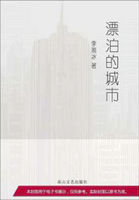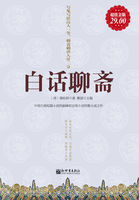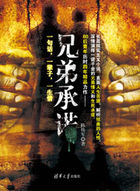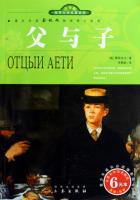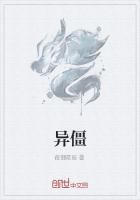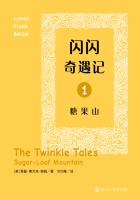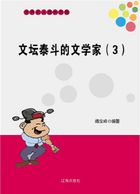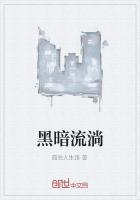Chapter 10
He had only received the chemist's letter thirty-six hours after the event; and, from considerationfor his feelings, Homais had so worded it that it was impossible to make outwhat it was all about.
First, the old fellow had fallen as if struckby apoplexy. Next, he understood that she was not dead, but she might be. Atlast, he had put on his blouse, taken his hat, fastened his spurs to his boots,and set out at full speed; and the whole of the way old Rouault, panting, wastom by anguish. Once even he was obliged to dismount. He was dizzy; he heardvoices round about him; he felt himself going mad.
Day broke. He saw three black hens asleep ina tree. He shuddered, horrified at this omen. Then he promised the Holy Virginthree chasubles for the church, and that he would go barefooted from thecemetery at Bertaux to the chapel of Vassonville.
He entered Maromme shouting for the people ofthe inn, burst open the door with a thrust of his shoulder, made for a sack ofoats, emptied a bottle of sweet cider into the manger, and again mounted hisnag, whose feet struck fire as it dashed along.
He said to himself that no doubt they wouldsave her; the doctors would discover some remedy surely. He remembered all themiraculous cures he had been told about. Then she appeared to him dead. She wasthere; before his eyes, lying on her back in the middle of the road. He reinedup, and the hallucination disappeared.
At Quincampoix, to give himself heart, hedrank three cups of coffee one after the other. He fancied they had made amistake in the name in writing. He looked for the letter in his pocket, felt itthere, but did not dare to open it.
At last he began to think it was all a joke;someone's spite, the jest of some wag; and besides, ifshe, were dead, one would have known it. But no! There was nothingextraordinary about the country; the sky was blue, the trees swayed; a flock ofsheep passed. He saw the village; he was seen coming bending forward upon hishorse, belabouring it with great blows, the girths dripping with blood.
When he had recovered consciousness, he fell,weeping, into Bovary's arms: “Mygirl! Emma! my child! tell me-”
The other replied, sobbing, “I don't know! I don'tknow! It's a curse!”
The druggist separated them. “These horrible details are useless. I will tell this gentleman allabout it. Here are the people coming. Dignity! Come now! Philosophy!”
The poor fellow tried to show himself brave,and repeated several times. “Yes! courage!”
“Oh,” cried the oldman, “so I will have, by God! I'll go along o' her to the end!”
The bell began tolling. All was ready; theyhad to start. And seated in a stall of the choir, side by side, they saw passand repass in front of them continually the three chanting choristers.
The serpent-player was blowing with all hismight. Monsieur Bournisien, in full vestments, was singing in a shrill voice.He bowed before the tabernacle, raising his hands, stretched out his arms.Lestiboudois went about the church with his whalebone stick. The bier stoodnear the lectern, between four rows of candles. Charles felt inclined to get upand put them out.
Yet he tried to stir himself to a feeling ofdevotion, to throw himself into the hope of a future life in which he shouldsee her again. He imagined to himself she had gone on a long journey, far away,for a long time. But when he thought of her lying there, and that all was over,that they would lay her in the earth, he was seized with a fierce, gloomy,despairful rage. At times he thought he felt nothing more, and he enjoyed thislull in his pain, whilst at the same time he reproached himself for being awretch.
The sharp noise of an iron-ferruled stick washeard on the stones, striking them at irregular intervals. It came from the endof the church, and stopped short at the lower aisles. A man in a coarse brownjacket knelt down painfully. It was Hippolyte, the stable-boy at the “Lion d'Or.” He hadput on his new leg.
One of the choristers went round the navemaking a collection, and the coppers chinked one after the other on the silverplate.
“Oh, make haste! I am in pain!” cried Bovary, angrily throwing him a five-franc piece. Thechurchman thanked him with a deep bow.
They sang, they knelt, they stood up; it wasendless! He remembered that once, in the early times, they had been to masstogether, and they had sat down on the other side, on the right, by the wall.The bell began again. There was a great moving of chairs; the bearers slippedtheir three staves under the coffin, and everyone left the church.
Then Justin appeared at the door of the shop.He suddenly went in again, pale, staggering.
People were at the windows to see theprocession pass. Charles at the head walked erect. He affected a brave air, andsaluted with a nod those who, coming out from the lanes or from their doors,stood amidst the crowd.
The six men, three on either side, walkedslowly, panting a little. The priests, the choristers, and the two choirboysrecited the De profundis, and their voices echoed over the fields, rising andfalling with their undulations. Sometimes they disappeared in the windings ofthe path; but the great silver cross rose always before the trees.
The women followed in black cloaks withturned-down hoods; each of them carried in her hands a large lighted candle,and Charles felt himself growing weaker at this continual repetition of prayersand torches, beneath this oppressive odour of wax and of cassocks. A freshbreeze was blowing; the rye and colza were sprouting, little dewdrops trembledat the roadsides and on the hawthorn hedges. All sorts of joyous sounds filledthe air; the jolting of a cart rolling afar off in the rots, the crowing of acock, repeated again and again, or the gambling of a foal running away underthe apple-trees: The pure sky was fretted with rosy clouds; a bluish hazerested upon the cots covered with iris. Charles as he passed recognised eachcourtyard. He remembered mornings like this, when, after visiting some patient,he came out from one and returned to her.
The black cloth bestrewn with white beadsblew up from time to time, laying bare the coffin. The tired bearers walkedmore slowly, and it advanced with constant jerks, like a boat that pitches withevery wave.
They reached the cemetery. The men went rightdown to a place in the grass where a grave was dug. They ranged themselves allround; and while the priest spoke, the red soil thrown up at the sides keptnoiselessly slipping down at the comers.
Then when the four ropes were arranged thecoffin was placed upon them. He watched it descend; it seemed descending forever. At last a thud was heard; the ropes creaked as they were drawn up. ThenBoumisien took the spade handed to him by Lestiboudois; with his left hand allthe time sprinkling water, with the right he vigorously threw in a largespadeful; and the wood of the coffin, struck by the pebbles, gave forth thatdread sound that seems to us the reverberation of eternity.
The ecclesiastic passed the holy watersprinkler to his neighbour. This was Homais. He swung it gravely, then handedit to Charles, who sank to his knees in the earth and threw in handfuls of it,crying, “Adieu!” He sent herkisses; he dragged himself towards the grave, to engulf himself with her. Theyled him away, and he soon grew calmer, feeling perhaps, like the others, avague satisfaction that it was all over.
Old Rouault on his way back began quietlysmoking a pipe, which Homais in his innermost conscience thought not quite thething. He also noticed that Monsieur Binet had not been present, and thatTuvache had “made off” aftermass, and that Theodore, the notary's servant wore ablue coat, “as if one could not have got a black coat,since that is the custom, by Jove!” And to share hisobservations with others he went from group to group. They were deploring Emma's death, especially Lheureux, who had not failed to come to thefuneral.
“Poor little woman! What a trouble for herhusband!”
The druggist continued, “Do you know that but for me he would have committed some fatalattempt upon himself?”
“Such a good woman! To think that I saw heronly last Saturday in my shop.”
“I haven't hadleisure,” said I-lomais, “toprepare a few words that I would have cast upon her tomb.”
On getting home Charles undressed, and oldRouault put on his blue blouse. It was a new one, and as he had often duringthe journey wiped his eyes on the sleeves, the dye had stained his face, andthe traces of tears made lines in the layer of dust that covered it.
Madame Bovary senior was with them. All threewere silent. At last the old fellow sighed-
“Do you remember, my friend, that I went toTostes once when you had just lost your first deceased? I consoled you at thattime. I thought of something to say then, but now-”Then, with a loud groan that shook his whole chest, “Ah!this is the end for me, do you see! I saw my wife go, then my son, and nowtoday it's my daughter.”
He wanted to go back at once to Bertaux,saying that he could not sleep in this house. He even refused to see hisgranddaughter.
“No, no! It would grieve me too much. Onlyyou'll kiss her many times for me. Good-bye! you're a good fellow! And then I shall never forget that,” he said, slapping his thigh. “Never fear,you shall always have your turkey.”
But when he reached the top of the hill heturned back, as he had turned once before on the road of Saint-Victor when hehad parted from her. The windows of the village were all on fire beneath theslanting rays of the sun sinking behind the field, He put his hand over hiseyes, and saw in the horizon an enclosure of walls, where trees here and thereformed black clusters between white stones; then he went on his way at a gentletrot, for his nag had gone lame.
Despite their fatigue, Charles and his motherstayed very long that evening talking together. They spoke of the days of thepast and of the future. She would come to live at Yonville; she would keephouse for him; they would never part again. She was ingenious and caressing,rejoicing in her heart at gaining once more an affection that had wandered fromher for so many years. Midnight struck. The village as usual was silent, andCharles, awake, thought always of her.
Rodolphe, who, to distract himself, had beenrambling about the wood all day, was sleeping quietly in his chateau, and Léon, down yonder, always slept.
There was another who at that hour was notasleep.
On the grave between the pine-trees a childwas on his knees weeping, and his heart, rent by sobs, was beating in theshadow beneath the load of an immense regret, sweeter than the moon andfathomless as the night. The gate suddenly grated. It was Lestiboudois; he cameto fetch his spade, that he had forgotten. He recognised Justin climbing overthe wall, and at last knew who was the culprit who stole his potatoes.
The next day Charles had the child broughtback. She asked for her mamma.
Chapter 11
They told her she was away; that she wouldbring her back some playthings. Berthe spoke of her again several times, thenat last thought no more of her. The child's gaietybroke Bovary's heart, and he had to bear besides theintolerable consolations of the chemist.
Money troubles soon began again, MonsieurLheureux urging on anew his friend Vincart, and Charles pledged himself forexorbitant sums; for he would never consent to let the smallest of the thingsthat had belonged to her be sold. His mother was exasperated with him; he greweven more angry than she did. He had altogether changed. She left the house.
Then everyone began “takingadvantage” of him. Mademoiselle Lempereur presented abill for six months' teaching, although Emma had nevertaken a lesson (despite the receipted bill she had shown Bovary); it was anarrangement between the two women. The man at the circulating library demandedthree years' subions; MéreRollet claimed the postage due for some twenty letters, and when Charles askedfor an explanation, she had the delicacy to reply-
“Oh, I don't know. Itwas for her business affairs.”
With every debt he paid Charles thought hehad come to the end of them. But others followed ceaselessly. He sent inaccounts for professional attendance. He was shown the letters his wife hadwritten. Then he had to apologise.
Fé1icité now wore Madame Bovary's gowns; not all,for he had kept some of them, and he went to look at them in her dressing-room,locking himself up there; she was about her height, and often Charles, seeingher from behind, was seized with an illusion, and cried out-
“Oh, stay, stay!”
But at Whitsuntide she ran away fromYonville, carried off by Theodore, stealing all that was left of the wardrobe.
It was about this time that the widow Dupuishad the honour to inform him of the “marriage ofMonsieur Léon Dupuis her son, notary at Yvetot, toMademoiselle Léocadie Leboeuf of Bondeville.” Charles, among the other congratulations he sent him, wrote thissentence:
“How glad my poor wife would have been!”

